Beyond the Backlash: A Quaker Perspective on DEI with Niyonu Spann
As DEI Initiatives come under attack, we must move beyond surface-level diversity and allyship to embrace our fundamental interconnectedness and mutual thriving. Quakers, according to our guest Niyonu Spann, are uniquely situated to speak profound truth into this pivotal moment. Niyonu is a teacher, singer/songwriter, community activator, and the founder of Beyond Diversity 101. In this episode, she invites us to confront uncomfortable truths about power, to find harmony in dissonance like a jazz musician, and to embrace the profound Quaker practice of discernment in a world crying out for genuine connection and “fiery love.”
Subscribe so you don’t miss an episode!
Join Friends General Conference for the 2025 Young Adult and Youth (YAY) Gathering from July 2-6 in Clarkston, Michigan, where our theme “Peace Like a River, Joy Like a Fountain” celebrates creativity, worship, and play in an inclusive, intergenerational Quaker community. Registration and more information is available at www.fgcquaker.org/yay, and is open to young adults (18-35), youth (0-18), their families, and volunteers of all ages. The deadline for registration is June 1st, so don’t delay.
Leave a comment below to share your stories and thoughts!
Download the transcript and discussion questions.
Discussion Questions
- Niyonu describes her ideal ally as “the one that sees that it’s their own life, it’s their own grandchildren, it’s their own family at risk of not having the joyous way of living.” How does this perspective challenge conventional ideas of allyship, and in what ways might this approach transform how we engage with social justice work?
- Using musical improvisation as a metaphor, Niyonu suggests that responding to “dissonant” perspectives requires presence and heart-response rather than rejection. How might Quaker practices of deep listening and discernment help communities navigate differences in our increasingly polarized society? How do we discern between “different” and “evil”?
Opening
Niyonu: And then in terms of an allyship, for me the ultimate ally is the one who sees that its their liberation that they’re fighting for. I am less and less interested in white folks who just want to stand behind me and say amen to what I’m doing. But in terms of ally , like who I want next to me, I want the one that sees that it’s their own life, it’s their own grandchildren, it’s their own family at risk of not having the joyous way of living that I think is ordained for us.
Jon: I’m Jon Watts. Today we have our final offseason episode. This has been an extended offseason, as we’ve been searching for our new podcast producer. I’m happy to say that we found them, and we’ll introduce you to them at the beginning of June, when they’ll launch a month-long miniseries exploring the most pressing stories of this moment.
But today, I want to talk with you about diversity. As you likely already know, here in the United States, diversity initiatives are under attack by the current government, and equity and inclusion have been thrown in there as some sort of amalgamated culture-war boogeyman.
Quakers of course hold as one of our fundamental principles that we believe in “seeing that of God in everyone.” Many Quaker worship services function on this principle. We don’t know who is going to be the minister today. God could speak through any one of us, and they may not use the same spiritual or cultural language that I might.
So what do Quakers have to say at a moment when diversity is under attack? I thought for this topic that I might talk with one of the preeminent Quaker leaders in our thinking about diversity, Niyonu Spann. I first met Niyonu when I was a resident student at the Pendle Hill Quaker retreat center, and she was the Dean. That was way back in 2008, It was a life-changing experience for me and Niyonu’s leadership was a big part of my experience there, especially as a young person trying to navigate a community where I was one of the only members of my generation.
For many years, Niyonu has led the Beyond Diversity 101 workshops, which she founded after a decade of work as a diversity trainer. Niyonu is also a singer-songwriter, and if you stick around to the end of the episode, she shares the song that is speaking to her the most in these times.
I visited Niyonu at 4 Circles Beyond. This is the Quaker high school that she is helping to create in Chester, PA. When it is finished, it will be the first Quaker highschool in a predominantly black city and Niyonu’s vision is that it will be tuition free to community members.
Part 1: Niyonu’s Journey to Quakerism
Jon: So, Niyonu, I wonder if you could tell me a little bit about how you became a Quaker.
Niyonu: Yeah. You know, it’s so funny. You can look back and see this trail which, in my case anyway, seems very clear. As a young kid, I always had a pull to Spirit and to spiritual understanding. As I was in a black Baptist church, as a young kid and baptized there, I was the one going up to, you know, Reverend Mapsen after and going, “but… so how does this… how could that be if this is? Right, so how do the people that live in such and such country that have never heard of Jesus, like why are they going to Hell?” You know, I would just like try to make sense. So, you know, and at the same time had this real pull to truth and integrity and, you know, the language then is a Christ-centered life. I really want it to be a prayerful, you know, Christ-centered person.
And then I went off to college and, you know, got exposed to some stuff in theology that I didn’t know existed, and who sat around and decided what books would go into the Bible and all of that. And that then arose a whole bunch of other questions.
And there I got exposed to this notion that you needed to be baptized by the Holy Spirit and speak in tongues if you were going to be truly saved. So I went down that path. I had some amazing spiritual experiences and a different, like fiery relationship with the Holy Spirit. I came to the end of my college days, and I had met a little earlier, but ended up marrying Dwight Wilson and learning something about these people called Quakers.
And, you know, with already the bubbling questions in my spirit around my Christian faith, and then sitting in silence and, you know, I already had the orientation to spirit of a very personal relationship. So it just felt like the silence just deepened that. And I definitely went through, I wouldn’t call it, you know, “the dark night of the soul”, that it wasn’t torturous, but it was definitely, I had the structure of my religious life fall apart and really questioning this notion of salvation, this notion of the way, the only way, you know, that Jesus was the only way. And went through probably two or three years of real dis-ease in that. And those structures just fell away for me. And I was able to, on the other side of that, really find a joyous expansion of relationship with spirit. And I felt very much at home in Quaker worship, in communal entering. Felt right at home and feels still to me. Absolutely right.
Part 2: DEI
Jon: Niyonu is well known for her work challenging conventional approaches to diversity training. She pushes beyond surface level inclusion, asking us to explore how our thriving is inextricably connected to each other’s.
Niyonu: At its essence, which is what I’m most interested in, creating spaces for us to explore, you know, diversity just is, right? So in many ways, the D, the diversity, is just acknowledging, acting on the knowing of difference. So to me, that is what diversity is.
And then you have the equity, which calls on us to paying attention to how power has operated and is operating, how use of self in relationship to diversity, and use of, you know, self as an individual, but then self as a group. So how can we tell the truth about how we as Quakers have interacted with and engaged diversity? Difference? How have we used our power? How are we using our power? What do we see and what don’t we see? And what is troubling to see and to acknowledge when it comes to difference plus power, how we’ve used ourselves.
And then, you know, the I, which is around inclusion, I would love to see us explore that a little more than we do, because I think a lot of times we think of inclusion as similar to hospitality in some way. Like, do we greet people at the door? Do we translate our pamphlets into Spanish? You know, like, and those are all aspects of inclusion. But there’s a level of inclusion, of diversity, of difference that I think can feel really threatening when we really get to it.
It reminds me of when I was at Pendle Hill, when I was dean at Pendle Hill, and there was an older Quaker woman who was very well known and respected in Quakerdom and I think probably gave money and whatnot. And she was visiting for the first time, and we were having, I don’t know, I think we had like a community meeting or something, and there was some drumming and singing and this and that. And when I sat with her, she said, “I see, you know, it seems like Pendle Hill is being Africanized”.
And it was, it was, it’s funny that I’m not finding words, because that’s exactly what it felt like at the time. It was like, I was like, from her vantage point, that’s what that community meeting felt like. It was partly because I was in front of the room. It was partly because people were expressing and dancing and doing things that they would not have been doing when she was at Pendle Hill.
But that’s, that point, like what we’re seeing in those moments of difference meeting itself
is where I would love our conversations in a really honest way and what feels to be threatened in those moments, like what feels like we may be losing.
And then in terms of, you know, allyship, for me, the ultimate ally is the one who sees that it’s their liberation that they’re fighting for. Like, I am less and less interested in white folks who just want to stand behind me and, you know, say amen to what I’m doing. I don’t mind a little bit of dollars being thrown toward the school that we’re creating and stuff like that, you know, some of that reparative work. But in terms of an ally, like who I want next to me, I want the one that sees that it’s their own life, it’s their own grandchildren, it’s their own family at risk of not having the joyous way of living that I think is ordained for us.
Jon: After the break, I talk with Niyonu about how to apply this wisdom practically, about how to be a good ally, and the distinction between diverse perspectives and straight out lies. Also, I asked her as a musician, what is most resonating with her right now… I think you’ll want to stick around to hear what she shared.
2025 Friends General Conference Young Adult and Youth Gathering
Trayce: Are you a young adult, teen, or a parent of kids from ages 0-18 looking for a meaningful spiritual experience this summer?
Sara: Do you want to connect with others across generations in a supportive, inclusive, and vibrant Quaker community?
Kody: Then join Friends General Conference for the 2025 Young Adult and Youth Gathering – also known as YAY!
Asma: I’m Asma, a High School Friend from Orlando, and I’m one of the YAY Gathering co-clerks
Sara: I’m Sara, a young adult Friend from Pennsylvania, and I’m also one of the YAY Gathering co-clerks
Trayce: I’m Trayce, an adult Friend from Tucson, AZ, and I’m one of the YAY Gathering co-clerks
Kody: I’m Kody, an adult Friend from New Mexico, and I’m FGC’s Young Adult & Youth Ministries Coordinator. From July 2nd through 6th, we’re inviting young adults age 18-35, youth from babies to age 18, their parents (or grandparents), and volunteers of all ages to come together in Clarkston, Michigan for YAY!
Trayce: Registration is open only until June 1st, so make sure you get your spot soon!
Asma: The theme this year is “Peace Like a River, Joy Like a Fountain,” focusing on nourishing your spirit through creativity, worship, and play.
Sara: Imagine five days dedicated to building an intergenerational community that truly centers the experiences of younger Friends. We’ll have dedicated time to worship together, learn, connect, and share our passions together – both within our peer groups and across generations.
Asma: In a social and political context of deep division and dehumanization, we seek to create a space where trans and queer identities are celebrated, where a commitment to racial justice infuses every part of what we do, and where Friends experience and offer one another love, belonging, and kindness. We come together to remind each other and ourselves that this kind of community and way of being in the world is not only possible, but critical, and holy.
Trayce: Centering younger generations means that we hold lightly how things have been done in the past, ready to experiment and explore. What else might characterize an intergenerational event centering younger Friends? Play, humor, movement, story, active engagement, and creative expression are prioritized in everything we do. We invite you to come and see, and create it with us!
Kody: Registration for the 2025 YAY Gathering is open now, but not for long! This event is open to children, teens, and their family members, young adults aged 18-35, and volunteers of all ages. The final deadline to register is June 1st.
Sara: Find all the details, including information about the program, how to volunteer, registration, housing, fees, and financial aid, on the FGC website. Visit the 2025 YAY Gathering page at fgcquaker.org/yay
Trayce: We need your help spreading the word! Please share this with friends and family and in your meetings. Also, talk directly to youth, young adults, and families about attending.
Asma: We need each other now more than ever.
Sara: Again, visit fgcquaker.org/yay for details and registration. That’s fgcquaker.org/YAY
Kody: We hope to see many of you this July at YAY Gathering!
Part 3: Allyship and Discernment
Jon: Welcome back. So Niyonu has been doing this work long enough to know that allyship and reconciliation can be easy to talk about in theory, and can be difficult and even sometimes painful to work out in practice. It takes a willingness to sit with discomfort, and the ability to improvise.
Niyonu: My musical sense really gives me a framework for understanding this. You know, you can play a chord and it can be pleasing to the ear and, you know, we learn that the one or the root of a key that we come back to or “doe” is the resting place, you know, and we’ll learn that a chord is, you know, is that one thing and three and five and that that makes a chord. And then we learn that there are certain notes that don’t fit in that chord, right, that they’re dissonant and the ear will hear that as, “Oh, that doesn’t fit”.
And I feel like what our work is is very similar to particularly in jazz. You will hear that note at first as dissonant, but you move with it. You shape around it. You go deeper into, “Okay, why is that note there?” And something begins to shift around the notion of not belonging potentially. If you can go there, not all people can go there easily, but it is the call of improvised, in the moment, present musicianship to be with that and then figure, okay, do I slightly shift one of the notes that I was playing before so then all of a sudden that dissonant note now has a place? How do we respond?
But that requires presence. I think it requires a heart response. It requires knowing that you are me, like even the most dissonant person right now, and we can think of several in this moment. And to the extent that I believe that I could never be you in a million years, I could never be you, that will have something to do with my capacity to move beyond what I call Diversity 101, which is what that is about. It’s going Beyond Diversity 101.
So yeah, that musical analogy for me is very real. It is very real. And it takes our creative selves to be able to respond to what appears to not fit. And it takes radical truth telling to absolutely decide that we’re rejecting something. And I do hold space for totally rejecting as well. So it’s not about finding harmony with everything. Let me just say, that’s not my ultimate message here.
Jon: Yeah, there’s so much there that I resonate with. I don’t know if you remember in my time at Pendle Hill, I had just come out of a music theory program at Guilford. And the very last class I took there was music of the world where we were learning about Indian scales and gamelans and scales that didn’t sound right to my ears would sound beautiful to other cultures. And so I was really into playing with atonal stuff.
Niyonu: I remember, indeed. It’s not a thing you forget.
Jon: Yeah, and so I imagine there’s a piano in the barn of Pendle Hill and you had your office above that and it’s right next to the worship space and there would be times, especially late at night, but sometimes in the middle of the day where I would go on these long rambles,
including long periods of disharmony, of notes that did not feel like they worked together to our ears, but being willing to sit in that and find the places where there is resonance between these two notes and discomfort here and what if I change one thing. So yeah, we could do the entire interview about that analogy.
Niyonu: We could. We absolutely could. We absolutely could. And I think that part of what is important in that description that you gave and what you were up to is based in the truth of the cultural differences and what was pleasing to the being in other cultures, which is very different than lies, which is what I feel like we’re having to discern now and which is different in terms of harmonizing with lies, with false expression. And the thing about our information age is that those that are really skilled at taking words or concepts that have meant something, you know, spiritual or wholesome and then using those words to convey untruths, but where you get really mixed up, you know, I’ll go to Google a word like, let’s say, “co-creation”. And it’s been usurped in all kinds of capitalistic ways. Now there’s products that are called and I’m like, “Oh my God”, this is like one of my words that is so, so it’s man, what is called for in terms of discernment with us right now is ultimate.
And part of why I feel like Quaker, Quakers, Quakerism, part of the gift that we have to bring is in the practice of listening and discerning. There is no aspect of Quakerism to me that is more important in the world than the practice of discernment, whether it is in how we do clearness committees, if it’s or if it is in how we hold business meetings. The challenge is whether we are living and worshiping in these ways. I’ve been to clearness committees many times where I thought we were going to really listen to the person that is seeking clearness in a worshipful way and really assist and support discernment. And folks are just giving their opinions in the kind of mental, rational way that I’m like, oh, okay, we’re not really doing this. So that’s our big challenge, live up to the light that we have really been given.
Part 4: Music
Jon: So I asked Niyonu, as I often do when I’m talking with a talented musician, what song is most resonating with her right now. She said this is what came to her the day after the election.
Niyonu:
I ain’t got no tears this time. I ain’t got no tears.
No more time to be in shock. Let me make it clear.
Listen deep, our ancestors are trying to lead us on.
They say, don’t you buy the okie doke.
You know right from wrong. You know right from wrong.
I ain’t got no tears this time. I ain’t got no tears.
No more time to compromise. Move through all our fears.
Face the ugly evidence. It’s just how it appears.
They’re holding on to stolen goods,
The sacred we hold dear. The sacred we hold dear.
I ain’t got no tears this time hearing that they won.
The call has been made evident. Our work has just begun.
We were never meant to settle for the middle ground.
We’re meant to stop oppression now.
We’re meant to stop the bombs. Meant to stop the bombs.
Empire is powerful. They’ve tightened up the reins.
The path to liberation ain’t about how they will change.
Time to hold each other strong. There’s nothing that we lack.
It’s time to stand in fiery love and leave no kin folk back.
Leave no kinfolk back. Leave no kinfolk back.
I ain’t got no tears this time. I ain’t got no tears.
No more time for holding back with measured declarations.
Listen deep. Our ancestors are trying to lead us on.
They say don’t you buy the okey-doke. It’s your turn to be strong.
It’s your turn to be strong. It’s your turn to be strong.
Jon: Thank you for listening and thank you to today’s guest, Niyonu Spann. You can find out more about Niyonu’s work through the link in our show notes.
Go to QuakerPodcast.com for discussion questions and a transcript of this episode. And while you’re there, please leave a comment with your thoughts about this episode.
This episode was hosted by me, Jon Watts. I also wrote and produced the music. Zack Jackson produced and edited this episode.
Thee Quaker Podcast is part of Thee Quaker Project, we’re a nonprofit Quaker media organization dedicated to giving Quakerism a platform in the 21st century. If you like what we’re up to, please consider becoming a monthly supporter.
You can go to QuakerPodcast.com and click support in the top right window. It takes less than five minutes and we really appreciate it. Thank you.
Hosted by Jon Watts.
Produced by Zack Jackson
Original music and sound design by Jon Watts (Listen to more of Jon’s music here.)
Mixed and mastered by Zack Jackson.
Supported by listeners like you (thank you!!)
Referenced in this episode:
- Niyonu Spann – http://niyonuspann.com/
- 4 Circles Beyond – https://www.4circlesbeyond.org/
- Beyond Diversity 101 – https://www.bd101.org/
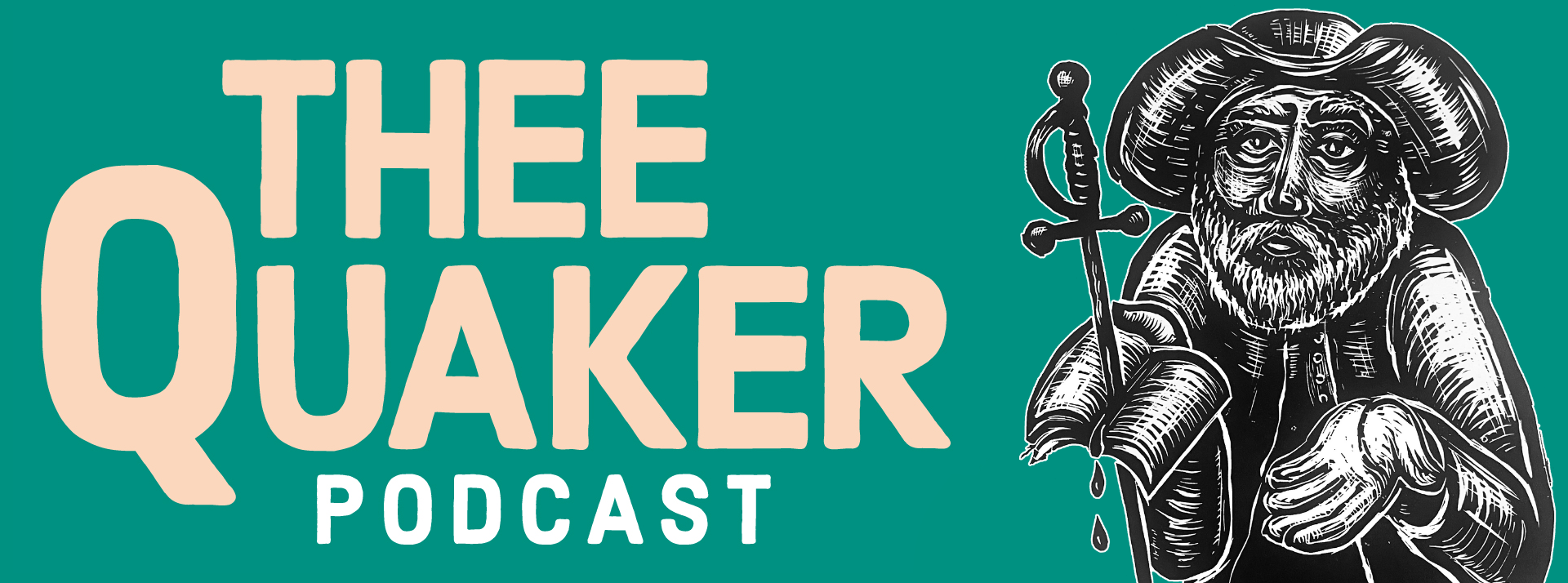

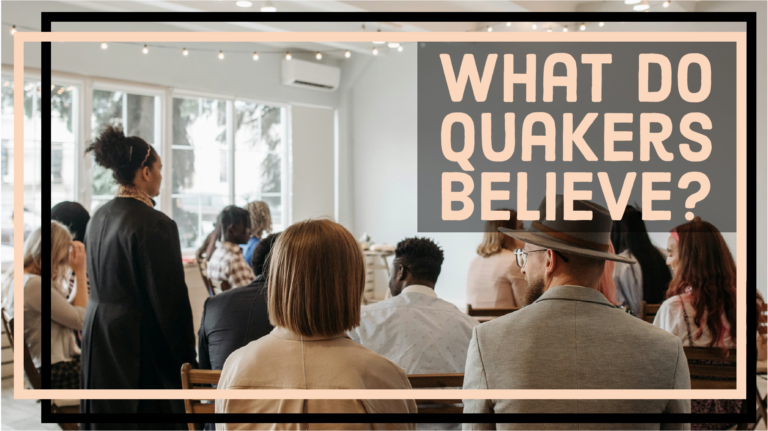
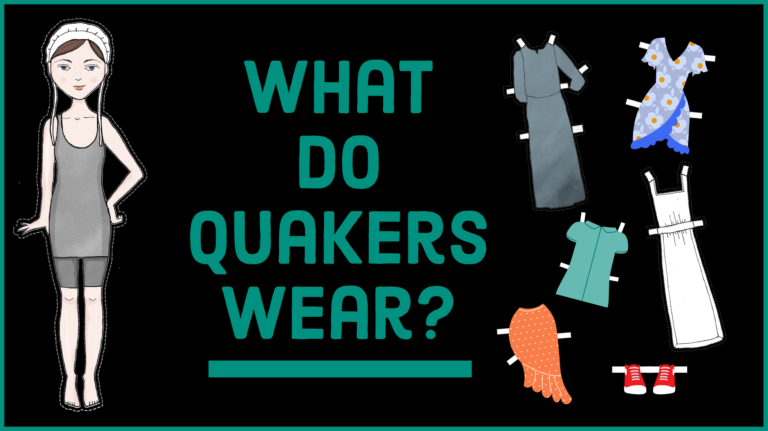

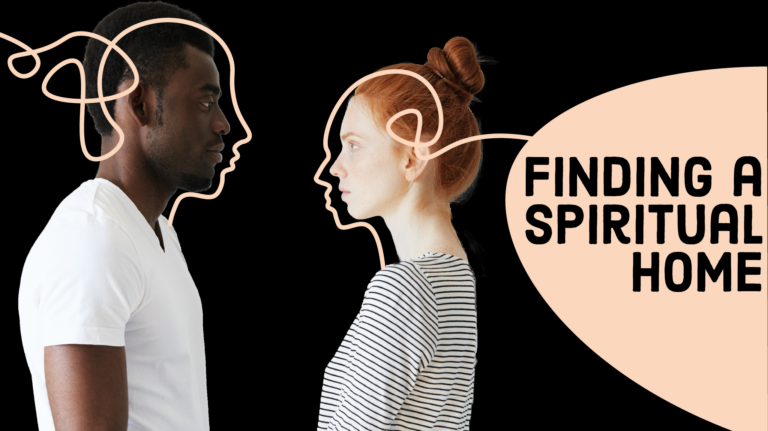

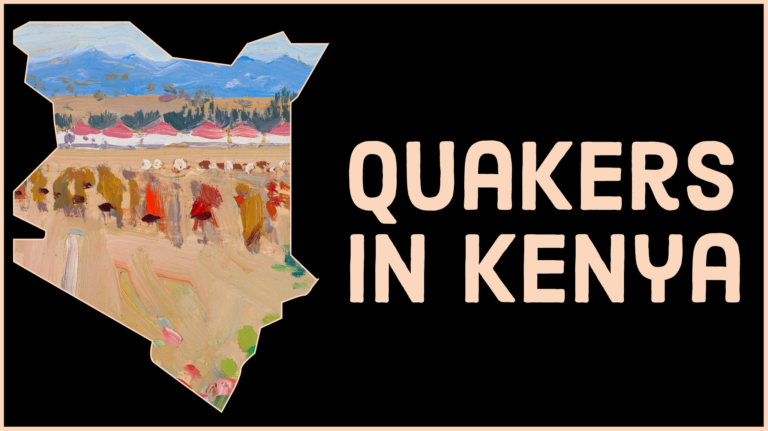
What an inspiring person and such an important topic for Quakers to be engaging with publicly. Witnessing regressive forces successfully wage a culture war against being woke to systems of oppression and committed to diversity, equity and inclusion has left me angry that there aren’t more mainstream voices standing up to explain and defend where these things come from, to fight to prevent them from being undermined and to not let criticism of them go unchallenged. Well, if they can’t or won’t, those of who us are truly committed to social justice, which I believe most Quakers are, must speak louder and more forcefully against the bullying and fear mongering that would mischaracterize and defame any step forward to forge a more fair and caring society into something elitist or racist or out of touch. These aren’t just words, it’s not simply a narrative, as Niyonu points out, it’s our collective liberation we’re fighting for! A great episode. Putting the interesting discussion aside, it was worth it alone to have heard the incredible spiritual she ends the episode with singing acapella!
Thank you Jon Watts for producing and hosting this and to guest artist, thinker, PERSON and Friend Niyonu Spann. Also, thank you to Lucy Duncan for recommending this episode of “Thee, Quaker.” Niyonu, though an elder, survivor or the turmoil (and incredible damages) of the Vietnam War, and white, I resonated deeply to your responses to prompts along the way in your spiritual journey. Your details and mine are different, yet parallel, the questioning the same, the coming home similar, yet continuing to question and witness to what we can become in today’s world. It is such a challenge (hackneyed word there, yet true) and I am deeply, deeply grateful for your song putting into words and melody some of what my spouse and I feel, some of our experience since last November. You have touched my heart.
I will recommend this episode of “Thee, Quaker” to my Spiritual Sharing group this morning. Blessings to you and to all of us of every color, experience, place in history and place among Friends. May we face the challenges of being Friends in this time honestly, with courage and commitment.